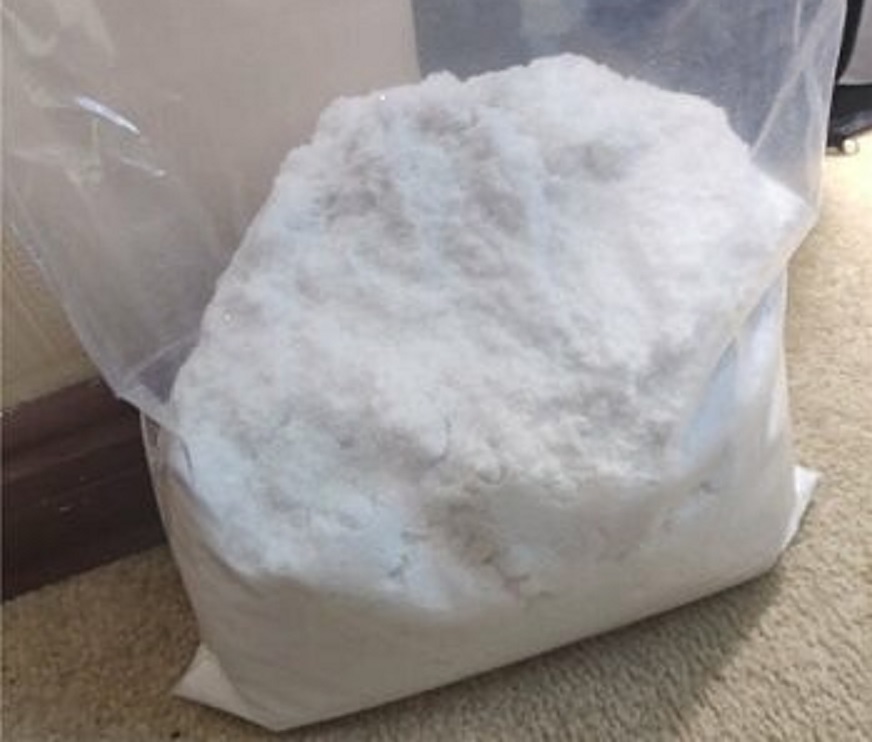The Effects of Xylazine Hydrochloride
Xylazine hydrochloride, also known as Rompun, is a sedative drug commonly used in veterinary medicine. It is primarily used as an animal tranquilizer, but it also has other effects on the body. In this article, we will explore the various effects of xylazine hydrochloride and its uses in veterinary medicine.
Sedation and Muscle Relaxation
The primary effect of xylazine hydrochloride is sedation. It is commonly used in veterinary medicine to calm and relax animals during procedures such as surgeries or examinations. It works by binding to certain receptors in the brain, causing a decrease in activity and inducing a state of sedation. This sedative effect can also lead to muscle relaxation, making it easier for veterinarians to handle and work with animals.
Pain Relief
In addition to its sedative properties, xylazine hydrochloride also has analgesic effects. This means that it can provide pain relief for animals, making it a useful drug for procedures that may cause discomfort or pain. It works by blocking the transmission of pain signals in the brain, providing relief for animals undergoing procedures or experiencing pain due to injury or illness.
Cardiovascular Effects
Xylazine hydrochloride can also have effects on the cardiovascular system. It can cause a decrease in heart rate and blood pressure, which can be beneficial during procedures that may cause stress or anxiety for the animal. However, this can also be a potential side effect, and veterinarians must monitor the animal’s vital signs closely while administering xylazine hydrochloride.
Respiratory Effects
Another effect of xylazine hydrochloride is respiratory depression. This means that it can slow down breathing and cause shallow or irregular breaths. While this can be beneficial during procedures that require the animal to be still, it can also be dangerous if the animal is not monitored closely. In some cases, veterinarians may need to provide respiratory support to ensure the animal’s safety.
Uses of Xylazine Hydrochloride
Xylazine hydrochloride is primarily used as a sedative and analgesic in large animals, such as horses and cattle. It is commonly used to calm animals for procedures such as surgery, dental work, or diagnostic tests. In smaller animals, such as dogs and cats, it is used to sedate them for minor procedures or to help with anxiety or fear-related behaviors. It can also be used in combination with other drugs for more complex procedures.Buy Xylazine hydrochloride Online
Veterinary Anesthesia

Xylazine hydrochloride
by Gonzalo Facello (https://unsplash.com/@gonchifacello)
The most well-known use of xylazine hydrochloride is as a veterinary anesthetic. It is commonly used in small animal surgeries, such as spaying and neutering, as well as in larger animals like horses and cattle. Xylazine HCL is a sedative, meaning it helps to calm and relax animals, making it easier for veterinarians to perform procedures without causing stress or harm to the animal. It is also an analgesic, providing pain relief during and after the procedure.
Pain Management
Xylazine hydrochloride is also used as a pain management medication in animals. It is commonly used in cases of colic in horses, as well as in other painful conditions. The medication works by blocking pain signals in the brain, providing relief to the animal. It is often used in combination with other pain medications for more effective pain management.
Sedation for Transport
Transporting animals can be a stressful experience for both the animal and the owner. Xylazine hydrochloride can be used to sedate animals during transport, making the experience less stressful for everyone involved. This is especially useful for long journeys or for animals that may become anxious or agitated during travel.
Treatment for Tetanus
Tetanus is a serious bacterial infection that can affect both humans and animals. Xylazine hydrochloride is often used as part of the treatment for tetanus in animals. It helps to relax the muscles and reduce spasms, which are common symptoms of the infection. This allows the animal to rest and recover more comfortably.
Wildlife Management

Xylazine hydrochloride
by Fas Khan (https://unsplash.com/@fasbytes)
Xylazine hydrochloride is also used in wildlife management, particularly in the capture and handling of large animals. It is used to sedate and immobilize animals, making it easier for researchers and conservationists to collect data, perform medical procedures, and transport animals safely. This medication has been crucial in the conservation efforts of many endangered species.
Conclusion
Potential Side Effects
While xylazine hydrochloride can be a useful drug in veterinary medicine, it is important to note that it can also have potential side effects. These may include changes in behavior, decreased appetite, and gastrointestinal upset. In rare cases, it can also cause allergic reactions or more severe side effects such as seizures or coma. It is crucial for veterinarians to carefully consider the dosage and monitor the animal’s response to the drug to prevent any adverse reactions.
Precautions and Warnings
Before using xylazine hydrochloride, it is important to consult with your veterinarian and disclose any medical conditions your pet may have. This drug should not be used in animals with heart, liver, or kidney disease, as it can worsen these conditions. It should also be used with caution in pregnant or nursing animals, as it can affect the health of the offspring. Additionally, this drug should not be used in animals with a history of seizures or in combination with other sedatives or tranquilizers.
Conclusion
Xylazine hydrochloride is a versatile medication with many uses in the veterinary world. From anesthesia to pain management to wildlife management, it has proven to be a valuable tool for veterinarians and researchers. However, it is important to note that this medication should only be used under the guidance of a trained professional. If you have any questions or concerns about the use of xylazine hcl for your animal, consult with your veterinarian for more information.














Reviews
There are no reviews yet.